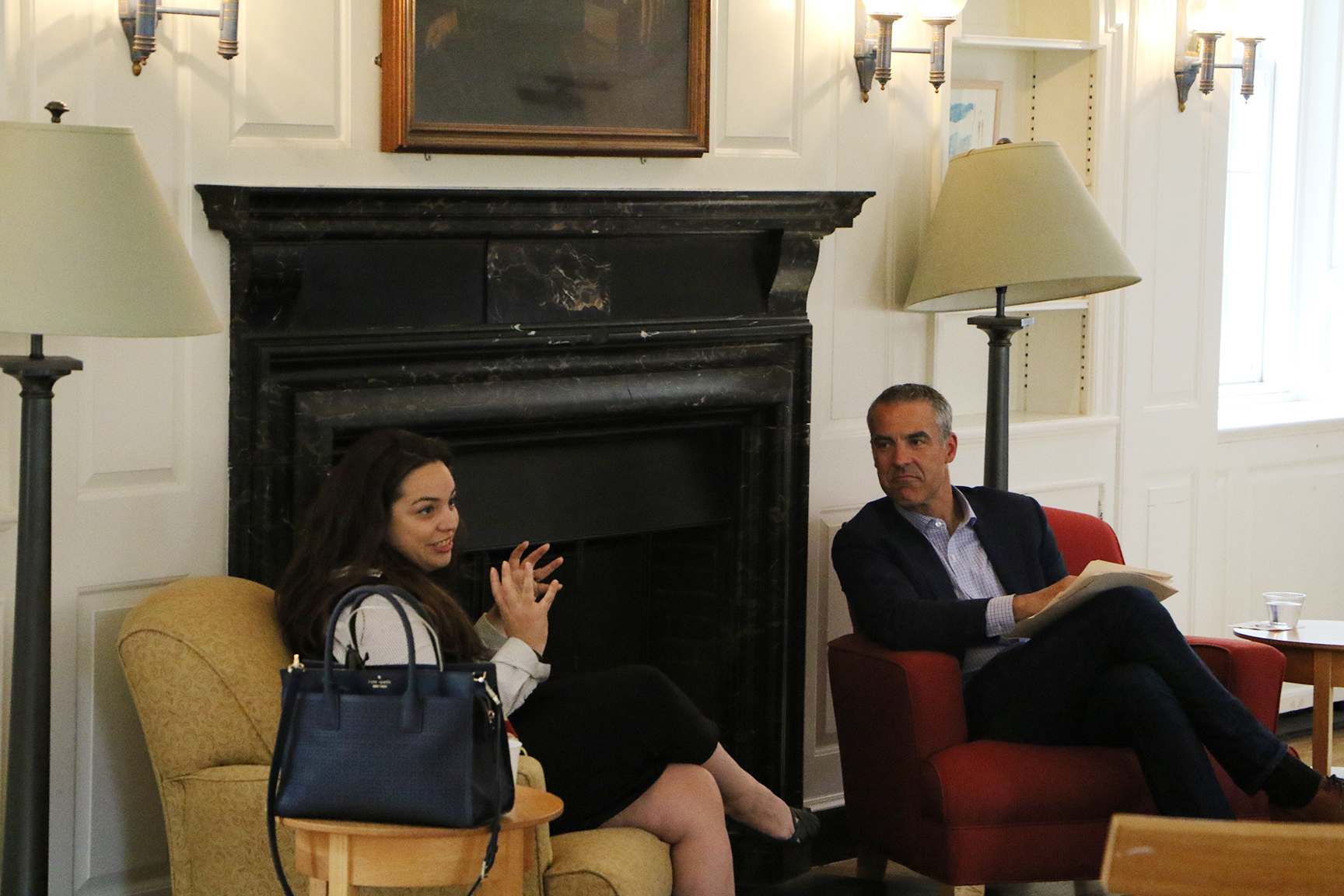
Kobe Rizk
In Davenport College’s first College Tea of the year, lawyer and activist Conchita Cruz LAW ’16 discussed asylum law and advocacy for Central American refugees.
Around 25 people turned out to hear Cruz, co-founder of the Asylum Seeker Advocacy Project, speak about her work. ASAP, founded by four Yale law students in 2015, advocates for Central American refugee mothers and children seeking asylum in the U.S. The project provides legal counsel and training as well as online resources for these individuals. The tea was organized by law school professor and Davenport Head John Witt, who is in his first year at the helm of the college.
“We set [ASAP] up as a way to help families in need and for mothers to help one another,” Cruz said. “We have to think critically about our country’s role in why these countries are so dangerous and why these people are fleeing.”
Cruz was inspired to form ASAP after a spring 2015 trip to an immigrant detention facility in Texas. While she was there, Cruz and other law students took on and successfully argued the case of a refugee about to be deported. But, after winning a number of other asylum cases and setting up a network of hundreds of volunteer lawyers, she and her classmates founded ASAP with the help of the Urban Justice Center in New York City.
Cruz said access to an attorney is “the most important factor” for refugees seeking asylum. Immigration law, and asylum law in particular, is complex, she said, but unlike in the criminal justice system, lawyers are not automatically provided by the state. This makes it very difficult to win asylum without representation — only around 10 percent of unrepresented asylum seekers win their cases.
“No other organization is going to help them,” Cruz said. “We have stopped thousands of deportations and hundreds of people from imminent deportation.”
One consistent theme of Cruz’s message was the failure of the American immigration system to help these people. Refugees are released from detainment centers with no information, then expected to show up to court and defend their asylum case. To combat this, Cruz and her co-founders started a private Facebook page to provide assistance and information for these released mothers. The group now contains over 2,000 members.
Cruz also emphasized the obligation Americans have to provide aid to these refugees. Cruz cited a round of mass deportations in the 1990s, when large numbers of gang members in Los Angeles were deported to Central America. These young men, left alone with no one to turn to, formed transnational gangs that carry out some of the violence plaguing the region today.
Attendees interviewed said they were thrilled to learn about Cruz’s work.
“I wanted the first tea that I ran to reflect the amazing energy of the students,” Witt said. “And I thought there couldn’t be someone better than Conchita for that.”
Attendee Kendall Brent ’20 said she was amazed by Cruz’s use of social media to provide information for these immigrant mothers. And Alejandra Padin ’18, who worked as an interpreter for ASAP in a Texas detention facility last summer, said it “was interesting to hear the principles taught while training us discussed here.”
Padin also empathized with Cruz’s description of working in the detention centers as “harrowing,” having experienced them firsthand herself.
“She was doing something I’d never even heard of, about a part of the [immigration] system that is so key to the lives of so many people,” said Bryan Mendoza ’21, whose parents immigrated from Cuba. “It was eye-opening to hear about.”
The College Tea was held in the Davenport common room.
Conor Johnson | conor.johnson@yale.edu







